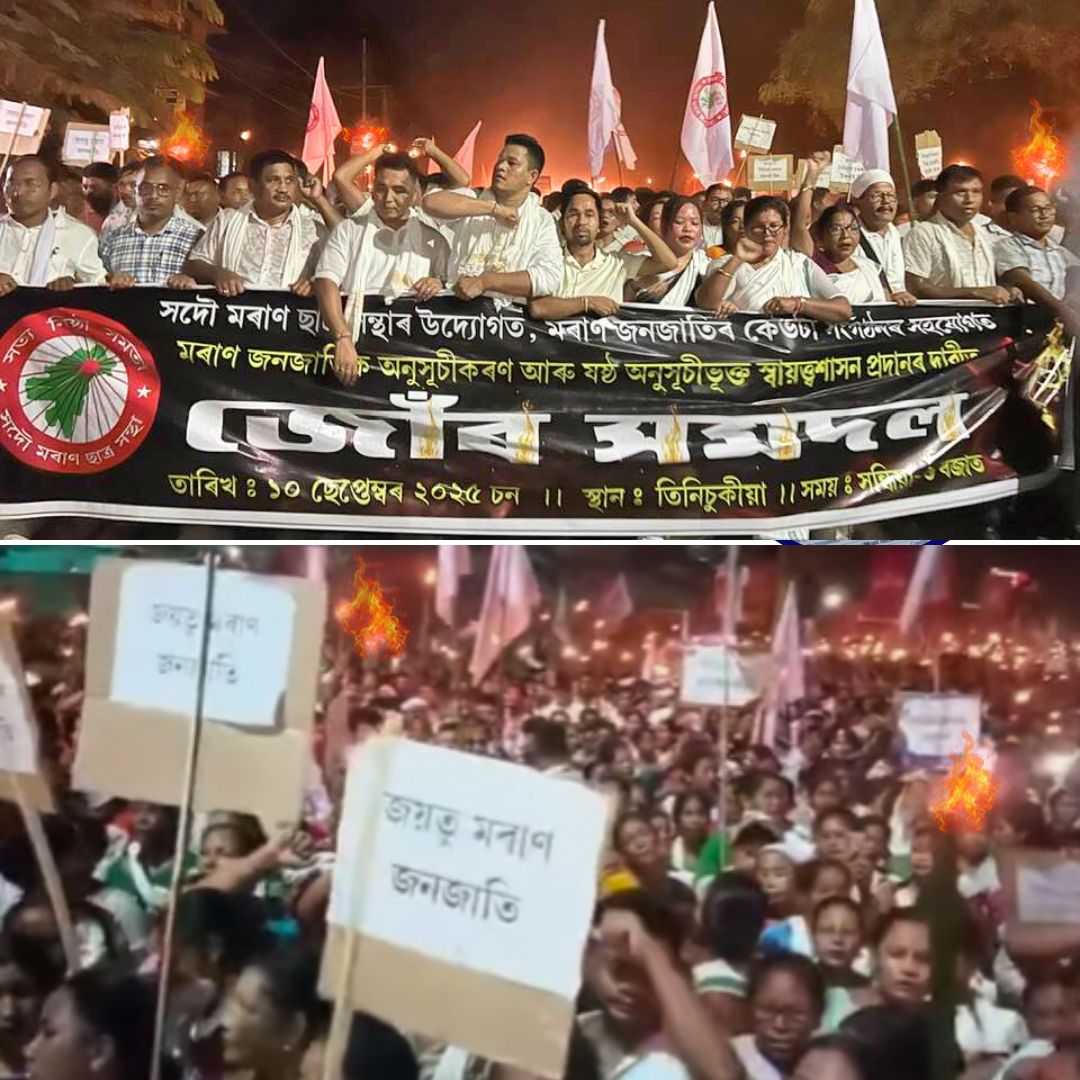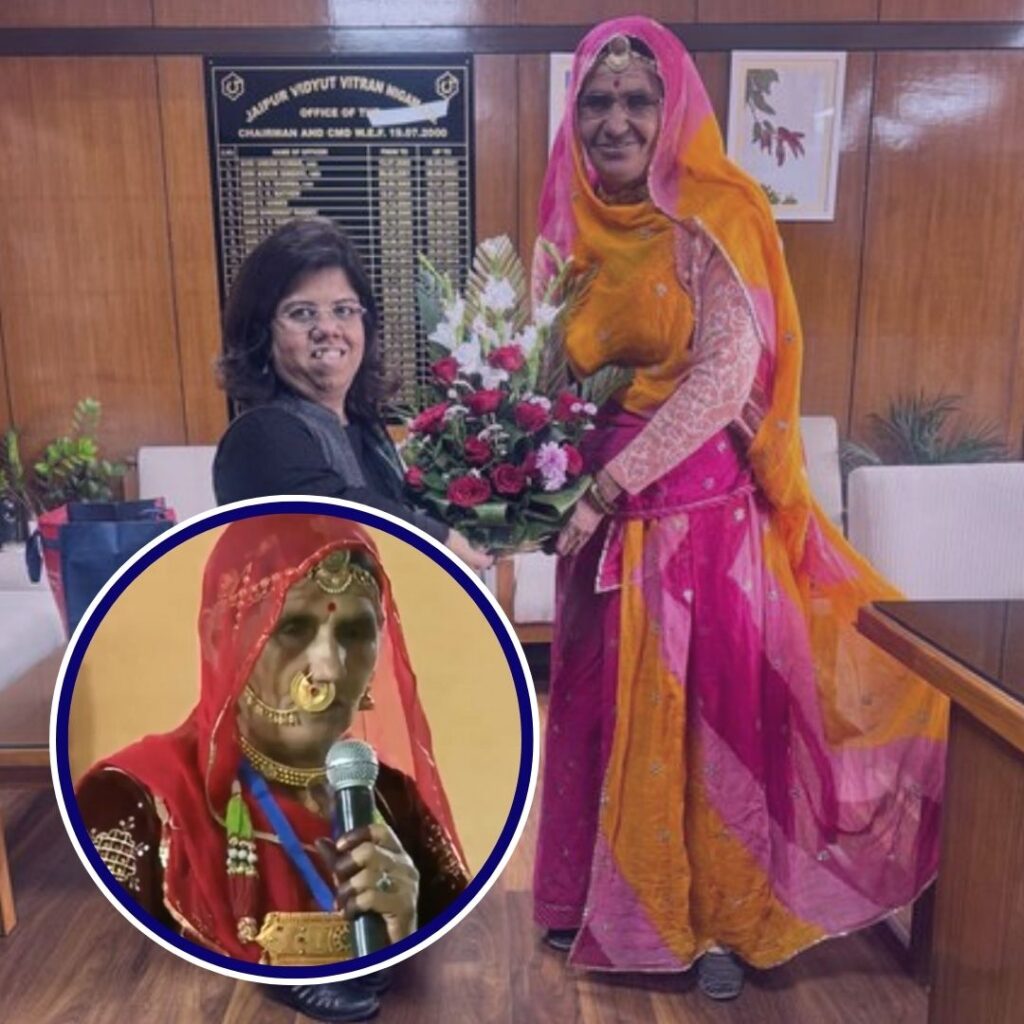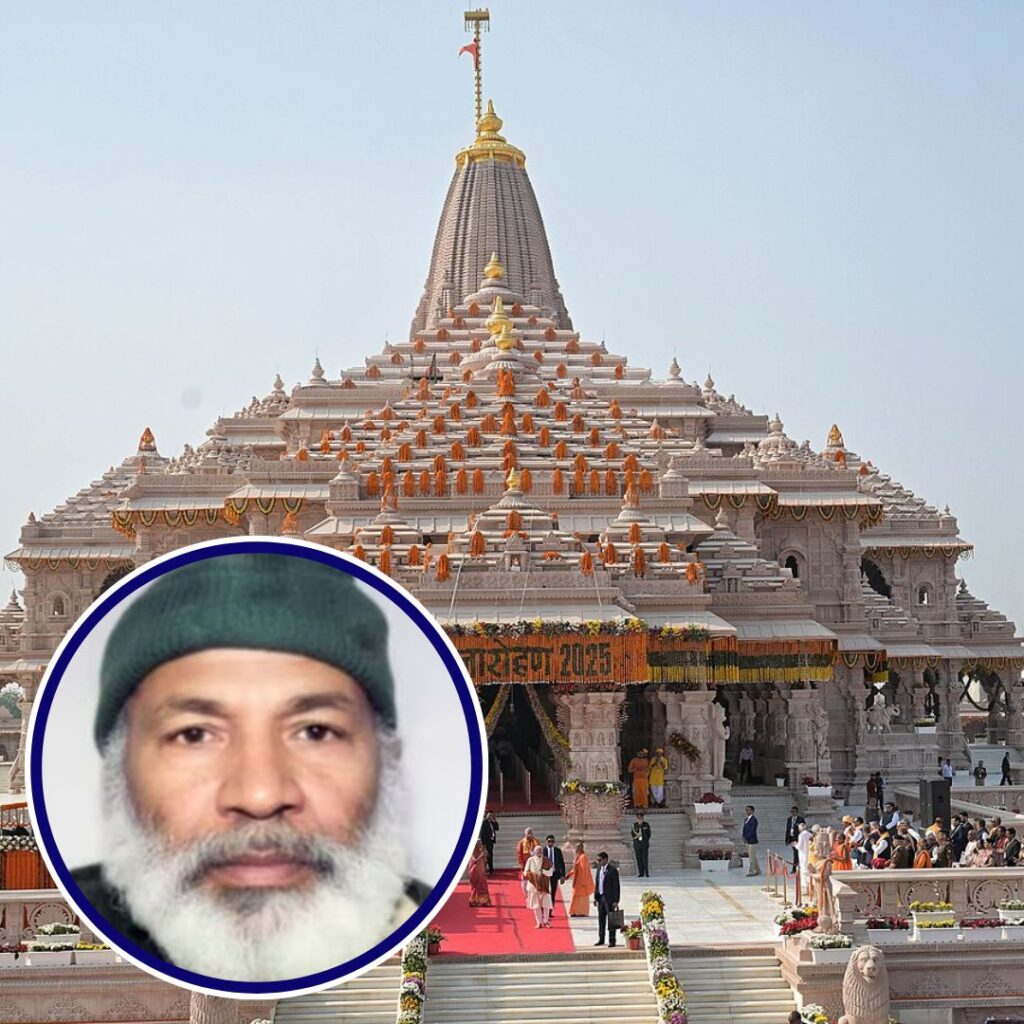Just days before Prime Minister Narendra Modi’s Assam visit, over 20,000 members of the Moran community staged a massive and peaceful protest in Tinsukia, demanding Scheduled Tribe (ST) status and inclusion under the Sixth Schedule of the Constitution.
Organised by the Moran Students’ Union, the rally underscored decades of unfulfilled promises by successive governments to recognise the Morans’ indigenous identity, land rights, and cultural preservation. They warned of an economic blockade starting September 15 if demands remain unmet, calling on the government for urgent action.
Massive Peaceful Demonstration Signals Growing Frustration
The Moran Students’ Union led the rally that began at the ITI field in Borguri, weaving through Tinsukia with more than 20,000 participants carrying placards and chanting slogans. Leaders Palindra Borah and Joykanta Moran declared their community among Assam’s oldest indigenous people seeking formal ST status and Sixth Schedule protection to safeguard their identity and resources.
The protest was marked by calls against political betrayal and demands for immediate government dialogue to resolve their long-standing issues. The mobilisation reflects the community’s determination to fight peacefully and democratically for recognition.
Long History of Unmet Promises and Escalating Agitation
The demand for Scheduled Tribe status by the Moran community dates back to election promises made by Prime Minister Narendra Modi and previous governments since 2014, but recognition remains elusive. Moran leaders accused the current BJP-led government of failing to honour its commitments, alongside past approvals from Congress and AGP administrations.
The protesters warned that their resolve would harden with an economic blockade planned from September 15 if the government fails to respond constructively within 72 hours. This protest follows earlier agitations across Upper Assam, signalling steadily rising tensions over identity and rights.
The Logical Indian’s Perspective
The Logical Indian believes that recognising indigenous communities like the Morans is vital to preserving India’s diverse cultural heritage and safeguarding fundamental rights. Governments must move beyond unfulfilled promises to meaningful policy implementation that embraces empathy, transparency, and dialogue.
Peaceful protests like this embody the community’s spirit and dedication to democratic engagement. It is crucial for authorities to respond constructively to uphold social harmony and justice.











